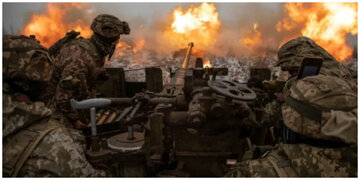They reiterate that war and aggression are reprehensible and destructive, and prohibiting the use of force and safeguarding the territorial integrity of countries are among the most fundamental principles of the UN Charter and constitute the pillars of the foreign policy of the Islamic Republic of Iran.
Killing and displacing innocent people in Ukraine and the troops and military personnel of the two warring sides are heart-rending.
Araghchi and Mozaffarpour ask whether the concern and experience of the Europeans in the light of the chaos and insecurity caused by the Ukraine war can force them to descend from their ivory tower of traditional defective mentality to perceive the concerns of other nation-states such as the Islamic Republic of Iran about security and threats ‘Empathetically.’
They argue how the Ukraine War can lead to a ‘Diplomatic Renaissance’ in Europe.
They discuss that ‘Empathy’ illustrates ‘intellect and mental development,’ especially ‘diplomatic wisdom and awareness.’ If Empathy cannot be materialized in the field of Human Sciences – as argued by many thinkers – it can be achieved in politics and diplomacy to a certain extent as a sign of ‘Diplomatic Wisdom.’
In that case, the war in Ukraine, despite irreparable damages, can have a positive result, and that is the formation of a new era in the foreign policy of the Europeans, which can perhaps be interpreted as the Enlightenment and flourishing of Diplomatic Wisdom through Empathetic and wise perception of the contemporary world.
The significant difference is that the former Renaissance and Enlightenment age was a ‘flourishing era of philosophical, social and political wisdom.’ Still, we can and should expect a ‘flourishing era of foreign policy and diplomatic wisdom’ following the Ukraine war.
The writers criticize the EU foreign policy and explain that it is surprising that the Western camp accused Communism for decades of trying to ‘Engineer’ the affairs of other countries and nations. They considered it the enemy of freedom and open society, poisoning the world and disrupting peace. Still, the West has embarked on Engineering the world society and politics for two centuries and endeavored to Engineer Iran’s developments for four decades.
It is more interesting that after eight years of Iran’s resistance against the dictator of Baghdad, who benefited from the Soviet long-range missiles, French Mirage fighters, German materials for chemical weapons, and information from the US AWACS planes, they still ask why Iran should have ballistic missiles? Or, while Europe and the US have turned the four sides of Iran’s neighboring borders into warehouses of advanced weapons, they complain about Iran’s regional policies and define Iran’s regional influence, which is a geopolitical requirement, as a threat.
This type of Europe’s view of protecting its security and destroying the security of others is not a kind of ‘Wisdom’; instead, it is based on ‘Naturalistic Instinct.’ With this mentality, Westerners cannot interact with the world unless they can put themselves in the place of others and assume the right to defend national interests and security for everyone.


Your Comment